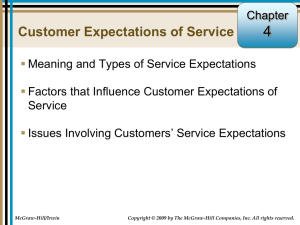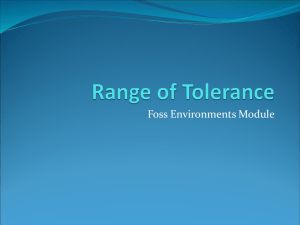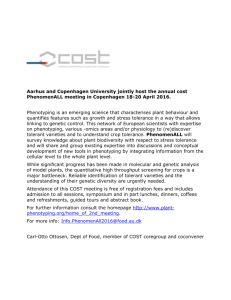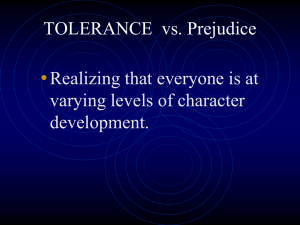Personal Values and Tolerance Sonia Roccas The Open University
advertisement
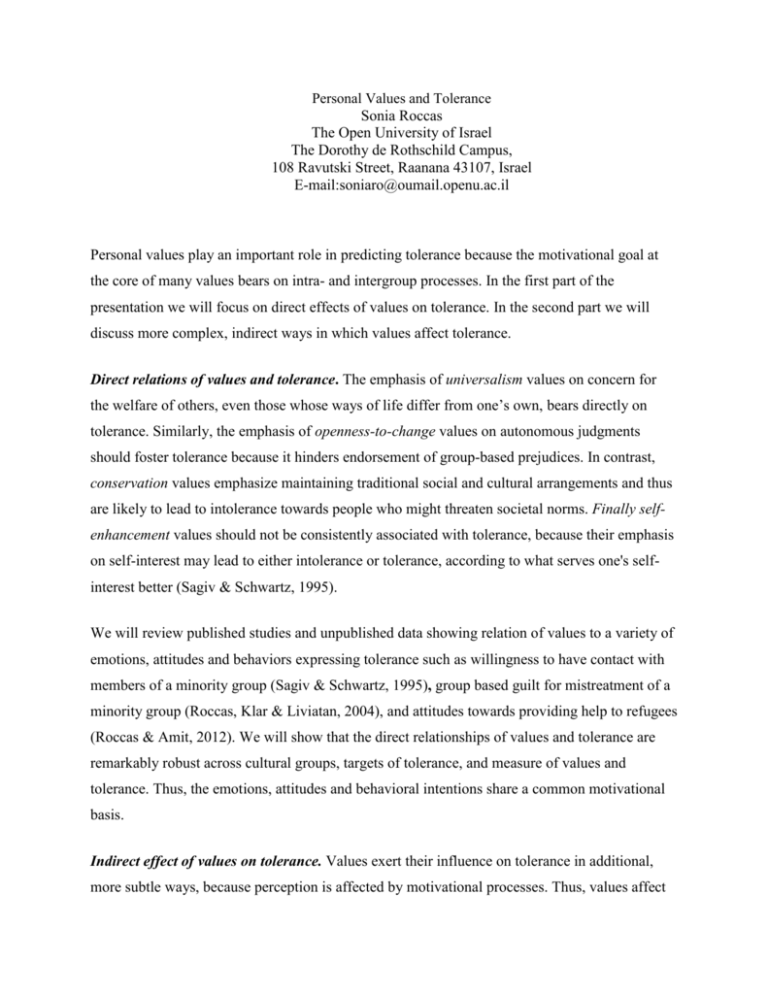
Personal Values and Tolerance Sonia Roccas The Open University of Israel The Dorothy de Rothschild Campus, 108 Ravutski Street, Raanana 43107, Israel E-mail:soniaro@oumail.openu.ac.il Personal values play an important role in predicting tolerance because the motivational goal at the core of many values bears on intra- and intergroup processes. In the first part of the presentation we will focus on direct effects of values on tolerance. In the second part we will discuss more complex, indirect ways in which values affect tolerance. Direct relations of values and tolerance. The emphasis of universalism values on concern for the welfare of others, even those whose ways of life differ from one’s own, bears directly on tolerance. Similarly, the emphasis of openness-to-change values on autonomous judgments should foster tolerance because it hinders endorsement of group-based prejudices. In contrast, conservation values emphasize maintaining traditional social and cultural arrangements and thus are likely to lead to intolerance towards people who might threaten societal norms. Finally selfenhancement values should not be consistently associated with tolerance, because their emphasis on self-interest may lead to either intolerance or tolerance, according to what serves one's selfinterest better (Sagiv & Schwartz, 1995). We will review published studies and unpublished data showing relation of values to a variety of emotions, attitudes and behaviors expressing tolerance such as willingness to have contact with members of a minority group (Sagiv & Schwartz, 1995), group based guilt for mistreatment of a minority group (Roccas, Klar & Liviatan, 2004), and attitudes towards providing help to refugees (Roccas & Amit, 2012). We will show that the direct relationships of values and tolerance are remarkably robust across cultural groups, targets of tolerance, and measure of values and tolerance. Thus, the emotions, attitudes and behavioral intentions share a common motivational basis. Indirect effect of values on tolerance. Values exert their influence on tolerance in additional, more subtle ways, because perception is affected by motivational processes. Thus, values affect the way in which people represent the characteristics of groups and their reactions when they are confronted with information threatening their preferred representation. We will present recent research on values and group perception and discuss its implications for tolerance. We will present findings of field and experimental studies showing that conservation values affect the extent to which one perceives similarity between one's characteristics and those of ingroups and outgroups (social projection). The more importance people attribute to conservation values the more they think that their engage is social projection of their attributes to their ingroups. Thus emphasis on conservation values leads to the perception that the ingroup is similar outgroups are dissimilar (Amit, Roccas, & Meidan, 2010). Social heterogeneity threatens perceived similarity to the ingorup, because one cannot be similar to a highly heterogeneous social object. Moreover, social heterogeneity hinders opportunities to attain conservation values because heterogeneous groups provide a complex and unpredictable social environment, in which social expectations are unclear and the distinctions between the ingroup and the outgroup are blurred. We will present research showing that conservation values moderate the effects of the saliency of the heterogeneity of one's ingroup. The more people emphasize conservation values the higher the tolerance for outgorup members when the group's homogeneity is made salient than when its heterogeneity was made salient (Roccas & Amit, in press). These findings indicate the importance of integrating individual and contextual variables in theories of group processes. Amit, A., Roccas, S., & Meidan, M. (2010). A group just like me: the moderating role of conservation values on social projection. European Journal of Social Psychology, 40, 931943. Sagiv, L., & Schwartz, S. H. (1995). Value priorities and readiness for out-group social contact. Journal of Personality and Social Psychology, 69, 437-448. Roccas, S., Klar, Y., & Liviatan, I. (2004). Exonerating cognitions, group identification, and personal values as predictors of collective guilt among Jewish-Israelis. In N. R. Branscombe & B. Doosje (Eds.), Collective guilt: International perspectives (pp. 130-147). Cambridge: Cambridge University Press. Roccas, S., & Amit, A. (in press). Group heterogeneity and tolerance: the moderating role of conservation values. Journal of Experimental Social Psychology.
